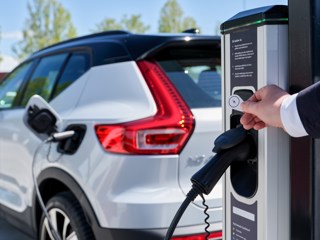In his latest opinion article for AM Professor Jim Saker considers the possibilities for hydrogen cars, posing the question 'Is Government taking hydrogen too lightly?'
Recently my attention was drawn to a short article in AM's sister title, Fleet News, which talked about Fleet Assist preparing its garage network to receive hydrogen-based vehicles.
It stood out for me because the article appeared at the same time as a number of major manufacturers were announcing new technology investment to support the development of electrified powertrains.
The article went on to explain Fleet Assist’s move saying the company wanted to be prepared for the early hydrogen adopters in fleet.
I thought the article was timely and showed a degree of foresight and forward planning, something that seems to be lacking with the UK Government on this issue.
The case for hydrogen fuel cell technology is strong. The general belief is that hydrogen-powered fuel cell electric vehicles (FCEVs) provide a high energy density and rapid refuelling with a minimal loss of range in low temperatures, making the technology ideal for larger, longer-range vehicles, or those operated in hot or cold environments.
With Stellantis announcing the development of a FCEV midsized van to be on the roads by the end of 2021 and Land Rover’s recent launch of their hydrogen concept Land Rover Defender, there is an indication that increasing numbers of manufacturers are thinking about following Toyota and Hyundai into the production of FCEVs.
In April, BMW, Hyundai, Stellantis and Toyota sent a joint letter to the executive vice-president of the EU calling for a further expansion of the existing network of 700 public hydrogen refuelling stations across Europe.
There is also going to be demand from the HGV sector and, with the H2Accelerate group of Iveco, Daimler, Volvo, Shell and OMV coming together, there will be increasing pressure on Government to invest in hydrogen infrastructure.
Madrid has announced that it is replacing 1,000 of its internal combustion engine (ICE) taxis with FCEV by 2026 with the first fee-paying passengers coming next year.
Paris has said that it will have 600 Toyota Mirai taxis in place by 2024. It appears that most of the progress and planning is being made in Europe, not in the UK.
The UKH2 Mobility consortium has expressed concern that ‘’hydrogen cars, vans, trucks and trains are all available across the world today, but there is no clear and specific policy support to create UK products or help bring these to the UK.’’
With potential products being made available in Europe, it is important for the car industry in the UK that the infrastructure is in place that will allow for the implementation of FCEV alongside conventional EVs.
This will include not only the provision of the equipment but also the training and qualifications a topic that Fleet Assist is talking to the IMI about providing.
With better planning from the Government downwards it will be possible to generate value throughout the supply chain and bring in revenue while helping to improve the environment.
Author: Professor Jim Saker is director of the Centre for Automotive Management at Loughborough University’s Business School, Institute of the Motor Industry (IMI) president and an AM Awards judge



















Login to comment
Comments
No comments have been made yet.